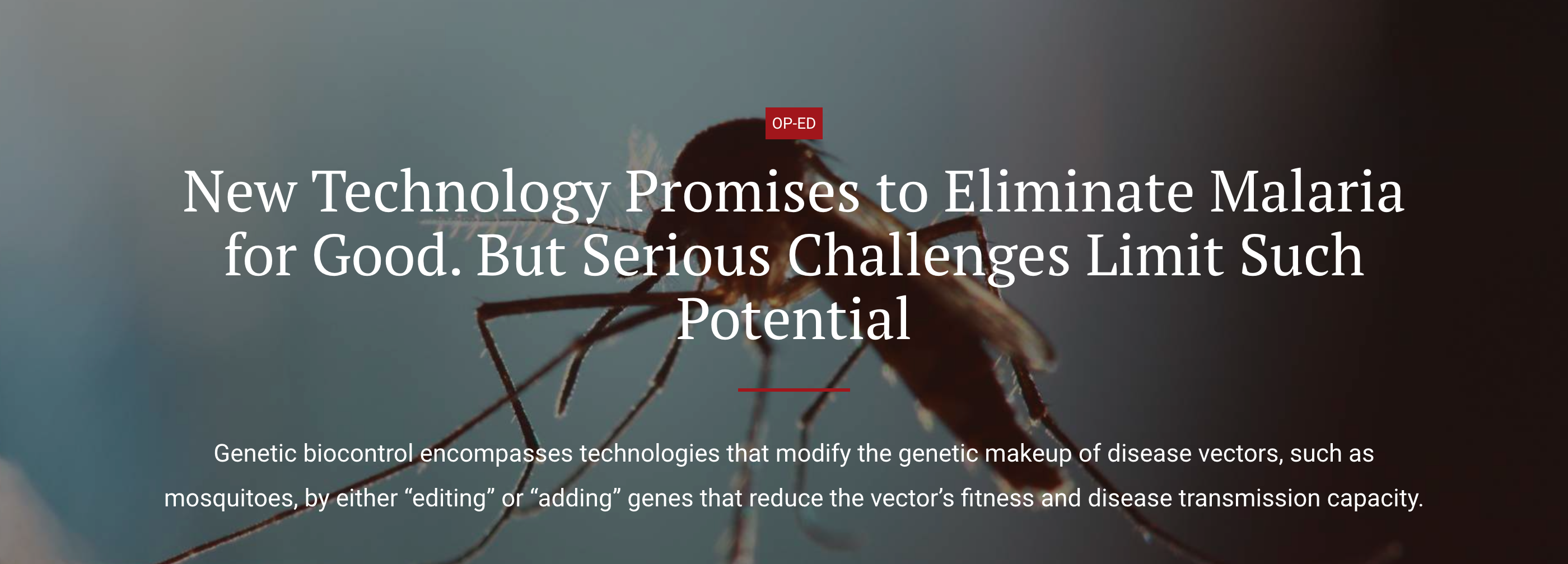
OPED: Ifakara scientist talks mosquito genetic modification

Dr. Brian Tarimo, a research scientist at the Ifakara Health Institute, was featured by "The Chanzo" – a leading multimedia storytelling platform. The feature highlights the work being done through the Ifakara’s Transmission Zero Project to modify the genetic makeup of mosquitoes, reducing their capacity to transmit the disease.
Written by Aneth David, an early career academic and research scientist at University of Dar es Salaam and contributor on “The Chanzo”, the Open Editorial explores this innovative technology which modifies the genetic makeup of mosquitoes, reducing their capacity to transmit the disease.
>> Read the full article by Aneth David (July 9, 2024)
More: About Mosquito Genetic Modification
Mosquito genetic modification represents a promising frontier in combating vector-borne diseases like malaria, dengue fever, and Zika virus. Through advanced genetic engineering techniques, scientists aim to alter mosquito populations in ways that could either reduce their ability to transmit diseases or even eradicate them entirely.
One approach involves introducing genes into mosquito populations that render them resistant to pathogens like the malaria parasite or dengue virus. This could potentially break the cycle of transmission from mosquitoes to humans, thereby reducing disease prevalence in endemic regions. Another strategy is to genetically modify mosquitoes to produce sterile offspring, which, when released into the wild, can reduce the overall population over time through reduced reproductive success.
Despite misconceptions and other challenges, recent advancements, such as the development of CRISPR-based gene editing techniques, offer precise tools for targeted genetic modifications in mosquitoes. This technology holds the potential to revolutionize vector control efforts and significantly impact global health outcomes.
Mosquito genetic modification presents both opportunities and challenges in the fight against infectious diseases. With careful consideration of ethical, environmental, and regulatory aspects, it holds promise as a powerful tool in disease control strategies worldwide.
More: About Transmission Zero
Transmission Zero is an international research programme that involves partners from Tanzania including the Ifakara Health Institute and the National Institute of Medical Research as well as at researchers from Imperial College London in the United Kingdom. We believe that malaria eradication is possible and that the technologies to achieve it are already here now.
